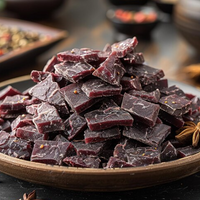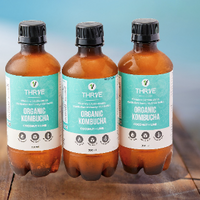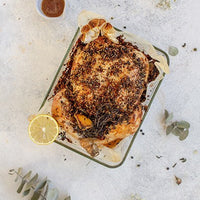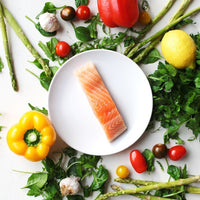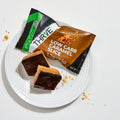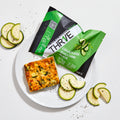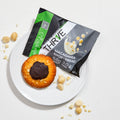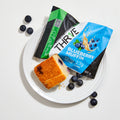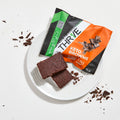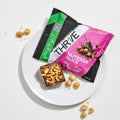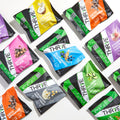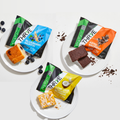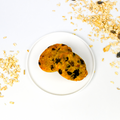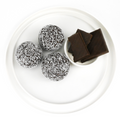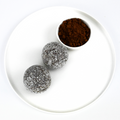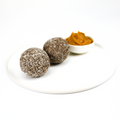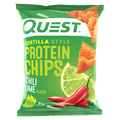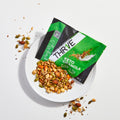Good news! You don’t have to avoid happy hour just because you’re cutting carbs. We’ve compiled a simple guide to alcohol and the keto diet. Cheers!
 To begin with, it’s worth considering why you’re following the keto diet in the first place. “If your goal is fat loss and you’ve just started your ketogenic journey, its best to avoid alcohol altogether for the first few weeks as your body adapts to being in ketosis. Too much alcohol is going to impact your goals,” advises THR1VE nutritionist Shannon Young. “If you’re following the ketogenic diet due to a health condition, again its best to avoid alcohol. However, if cutting carbs is more of a general lifestyle choice, then there’s no harm in having a few low sugar drinks.” Your choice is purely dependent on your goals and how quickly you want to achieve them.
To begin with, it’s worth considering why you’re following the keto diet in the first place. “If your goal is fat loss and you’ve just started your ketogenic journey, its best to avoid alcohol altogether for the first few weeks as your body adapts to being in ketosis. Too much alcohol is going to impact your goals,” advises THR1VE nutritionist Shannon Young. “If you’re following the ketogenic diet due to a health condition, again its best to avoid alcohol. However, if cutting carbs is more of a general lifestyle choice, then there’s no harm in having a few low sugar drinks.” Your choice is purely dependent on your goals and how quickly you want to achieve them.
What’s on the menu?
When it comes to a low-carb happy hour, it’s really about drinking smarter – but certainly not harder. “The simple answer is you can stay in ketosis if you drink alcohol in moderation, but you need to be careful what kind of alcohol you drink. You can have a drink or two of low sugar drinks without disrupting ketosis,” says Shannon.
There’s quite a few options to choose from, too. “Spirits are probably your best choice – gin, tequila, vodka, whiskey and rum etc. They’re essentially just alcohol and water. Serve with a mixer that contains very low to no sugar and your drink is going to contain very little to no carbohydrates. Your next best option is probably a dry wine. Beer and most cocktails should, unfortunately, be off the menu.”
Also keep an eye on serving sizes. For example, many red wine glasses are around 700ml, to allow your wine to breathe. This makes it really easy to pour more than a standard serve of red wine – which is 100ml. FYI, that’s just under a 1/3 of a measuring cup. Oh.

Can you eat away the damage?
In general, good nutrition will help with the detoxification process. “Our body is exposed to large amounts of toxins each day, in our food, water and the air. Plus, we often willingly consume toxins in the form of alcohol. Our body has a detoxification process to break these down and remove them and our liver is the most important organ in this process. However, when you drink, you place an extra toxic load on the liver,” says Shannon. Luckily, you can give your liver a helping hand. “Phytonutrients have been found to have anti-inflammatory and antioxidant effects on the liver and defend against toxic invaders. Foods such as ginger, turmeric, green tea, olive oil, garlic, berries and carrots are all high in phytonutrients.”
If you’re partial to a drink, you also need to watch your balance of omega-6 and omega-3 fatty acids. Too many omega-6s cause excess inflammation in the body – which is further exacerbated by those glasses of dry white wine. One of the issues with excess inflammation is that it can increase your risk of liver cirrhosis and fatty liver disease. Add alcohol in the mix and your liver will not be thrilled.
“Contrary to popular belief, inflammation is a crucial process as it prevents infection or disease spreading,” explains Shannon. “However too much inflammation has the opposite effect. Omega-3s help reduce inflammation, whereas omega-6s create enough to protect the body. You just want to get the balance right. To do this, increase your consumption of cold water fish such as salmon, sardines and mackerel, as well as walnuts, flaxseeds, avocado and olive oil. Reduce your intake of omega-6s such as refined vegetable oils (corn, soybean, sunflower) that are found in fast foods, packaged snack foods, cookies and sweets. Omega-6s are essential, but if you’re eating foods such as fish, tahini, nuts and seeds, you’ll still be consuming enough omega-6s to fulfil your requirements.” Even if you’re not cracking open the wine – it’s essential to get this balance right to ensure good nutrition.
Like so much nutrition advice, when it comes to happy hour, it’s really about just enjoying those vodka sodas in moderation. However, if you get carried away – don’t fret either. Realistically, one night out isn’t going to completely derail your diet. Just enjoy and get back to a balanced diet the next day. Cheers to that!
Is the keto hangover a thing?
Without that bread basket to line your stomach, surely you’ll get tipsy quicker, right? According to Shannon, there could be some truth to this. “This is really dependent on the individual, as everyone metabolizes alcohol at different speeds. Some research suggests that due to carb depletion your body is going to start processing the alcohol much quicker, meaning the alcohol buzz is going to hit you much earlier.”
There’s a reason that the hangover might hit you hard, too. “This is because your glycogen stores are lower. For each gram of glycogen in your body, you have 3-4g water. So, naturally you have much less water stored in your body. This should give you extra incentive to keep that glass of water handy and have some between each drink,” says Shannon. “In saying all this, you and your keto mate can be at the same stages of your keto journey, eat and drink the exact same things and they might wake up ready to run a marathon, while you can’t even comprehend leaving your bed. Unfortunately, that’s just how things go.” Way harsh, but true.
The Best Keto Bar Snacks
Just because fries are off the menu, doesn’t mean you have to go hungry! We asked THR1VE Nutritionist Shannon Young for her best keto bar snacks.- Lightly salted nuts and seeds
- Antipasto options: variety of olives, nitrate-free meats, cherry tomatoes, pickles, artichokes
- Sliced capsicum, carrot and celery served with avocado dip and hummus
- Cheese board: mozzarella, brie, blue, cheddar, feta and swiss cheese
- Prawns and smoked salmon

